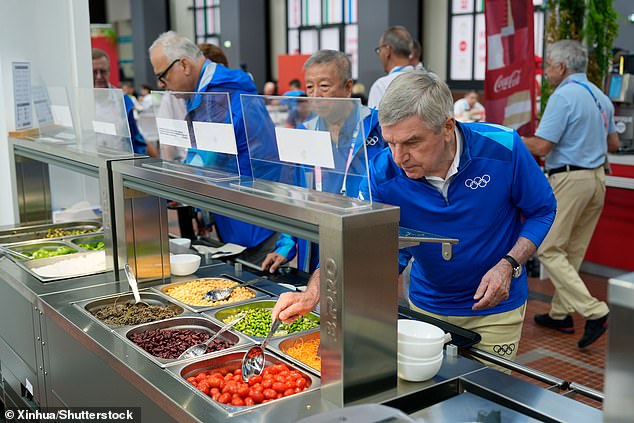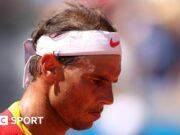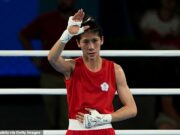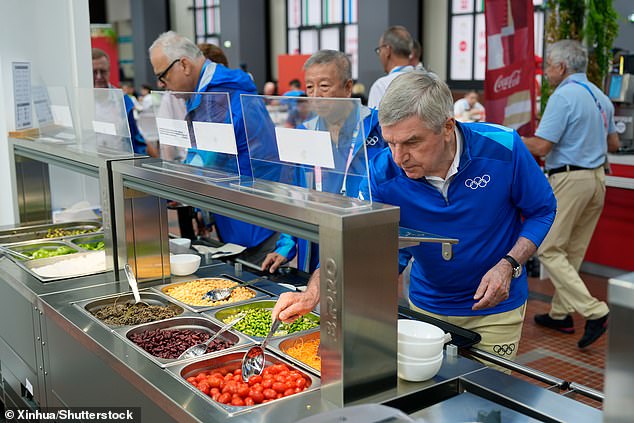- Meat and eggs are now being provided to the Olympic village
- Plant-based meal alternatives were initially offered to athletes
- However, organisers have bowed to the demands of the teams
Organisers of the Olympic Games have given in to athlete complaints and ordered over 700kg of eggs and an additional tonne of meat to replace plant-based meal options and non-dairy alternatives.
Athletes have expressed dissatisfaction with the food provided at the Olympic village, among other issues, including inadequate air conditioning, uncomfortable cardboard beds, long distances to the cafeteria, and overcrowded buses with erratic schedules.
The Paris Games officials aimed to make this Olympics the most environmentally conscious ever, emphasizing sustainability in nearly every aspect.
Unfortunately, this stringent focus on being eco-friendly has contributed to poor conditions for competitors striving for excellence in Paris, leading to fewer world records than expected.
While officials have often downplayed these issues within the Olympic village, Etienne Thobois, the chief executive of Paris 2024, has acknowledged the need to address food options with a significant increase in meat and eggs.
‘Concerning food, we have made necessary adjustments, which is quite standard,’ Thobois noted.
‘The provision of 700kg of eggs and a tonne of meat reflects our response to the athletes’ requirements.

Meat and eggs will be flown into the athletes village in Paris

Stars had been presented with fake meat options in the village, which has proven unpopular
‘We have a comprehensive nutritional vision aimed at supplying essential products, including organic options. We have adjusted everything to ensure satisfaction among all stakeholders.’
‘We have engaged with the heads of delegations and prioritized athletes in adapting our services to meet their needs.’
Organisers have also reversed their stance on renting air conditioning units, realizing this policy disproportionately affected smaller nations.
Countries such as Australia, Britain, Germany, Italy, Japan, America, and China had already installed air conditioning before the Games commenced, with AOC chief executive Matt Carroll stating, ‘We understand the rationale for not utilizing air conditioning due to the carbon footprint,’ but emphasized that ‘this is a high-performance Games. We’re not on a picnic.’
Paris 2024 spokeswoman Anne Deschamps also announced that all teams are now allowed to bring in their own air conditioning units.

Paris organiser Etienne Thobois admitted he had listened to complaints
‘We are striving for a balance between long-term sustainability goals and providing high-performance athletes with optimal conditions,’ she stated.
Australian swimming star Ariarne Titmus characterized the situation as ‘ridiculous,’ mentioning the impact on her performance in the 800m freestyle event that prevented her from achieving a world record.
‘The time I performed wasn’t reflective of my capabilities, but the Olympic Village environment made it challenging to excel,’ she shared in a recent interview.
‘This environment is definitely not conducive to high performance; it really tests your mental resilience.’



































